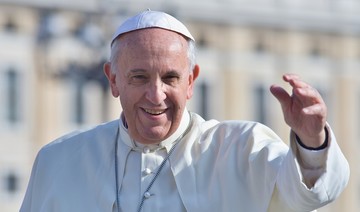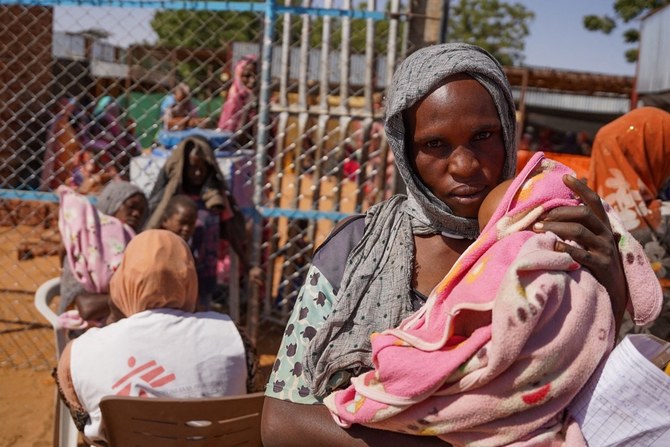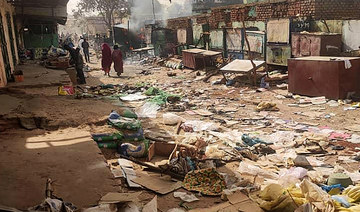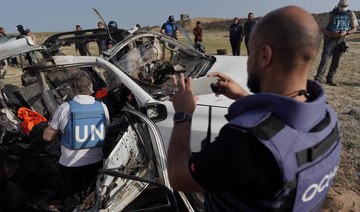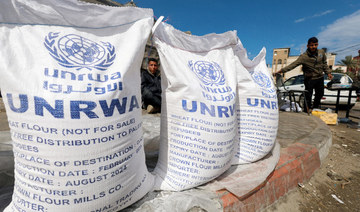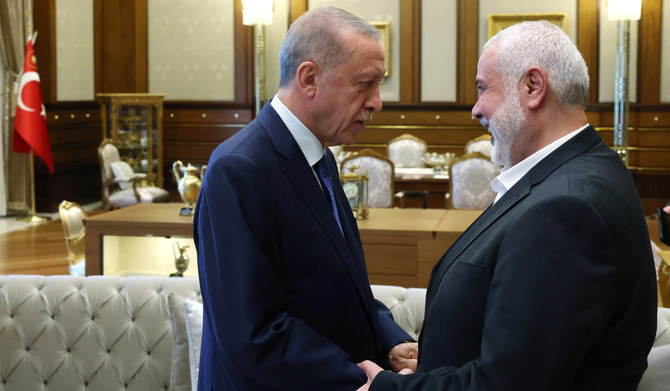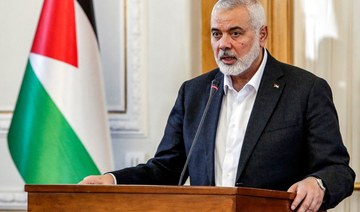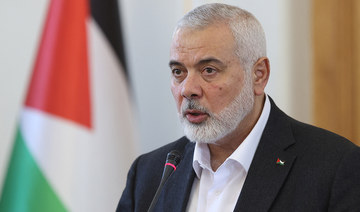ABU DHABI: It will be the year that takes Brexit to its tipping point, sees key elections held across the globe and defines the way ahead for the world’s economy, but 2019 will also be pivotal for the Arab world.
From history-making visits to the Gulf Cooperation Council (GCC), record-breaking buildings being unveiled and sporting firsts being celebrated, the next 12 months are set to create another momentous chapter in the Middle East’s story.
One of the first milestones comes this month when Saudi Arabia hosts the next round of peace talks on Afghanistan. The talks follow discussions between King Salman and Afghan President Ashraf Ghani, and a key global conference in the Kingdom where Islamic scholars discussed approaches to end the 17-year conflict.
History will also be made in February when Pope Francis visits the UAE capital Abu Dhabi to push for Christian-Muslim dialogue and peace — a landmark for the region.
While the pope has visited other Muslim-majority nations, including Egypt, Turkey and Jordan, the UAE trip, centered around an interfaith meeting, will mark the first pastoral visit by a Roman Catholic leader to the Arabian Peninsula.
Vatican spokesman Greg Burke said that the visit shows the importance Pope Francis places on inter-religious dialogue, while the UAE’s Prime Minister, Sheikh Mohammed bin Rashid Al-Maktoum, tweeted that the visit “will strengthen our ties and understanding ... and help us work together to maintain and build peace among the nations of the world.”
The pope arrives on Feb. 3, just after the UAE finishes hosting the continent’s biggest football event — the Asian Cup — from Jan. 5 to
Feb. 1, for the first time since 1996.
The UAE capital will also host the Special Olympics World Games Abu Dhabi 2019, the largest sports and humanitarian event in the world, and the first to be held in the MENA region.
More than 7,500 athletes from 192 nations, including a 51-strong team from Saudi Arabia, will compete in 24 officially sanctioned Olympic-style sports from March 14-21, in a sporting showcase that is set to be the most unified Games in its 50-year history.
Mohammed Abdulla Al-Junaibi, chairman of the Higher Committee of Special Olympics World Games Abu Dhabi 2019, said: “We look forward to giving thousands of people from every corner of the world the chance to showcase sporting excellence on a global stage.”
Sporting firsts will also be held in Saudi Arabia when Jeddah hosts the football showpiece the Italian Super Cup, known as the Supercoppa Italiana, between European giants AC Milan and Juventus on Jan. 16. Last summer, it was confirmed that three of the next five iterations of the fixture would be played in the Kingdom, after it agreed a deal with the General Sports Authority.
The Super Cup, first staged in 1988, has often been played outside Europe, but its arrival in the Kingdom will open the fixture to an even wider audience.
Saudi Arabia’s list of sporting firsts in 2019 will extend to golf, with the European Tour expanding the game’s global appeal with an event in the Kingdom for the first time.
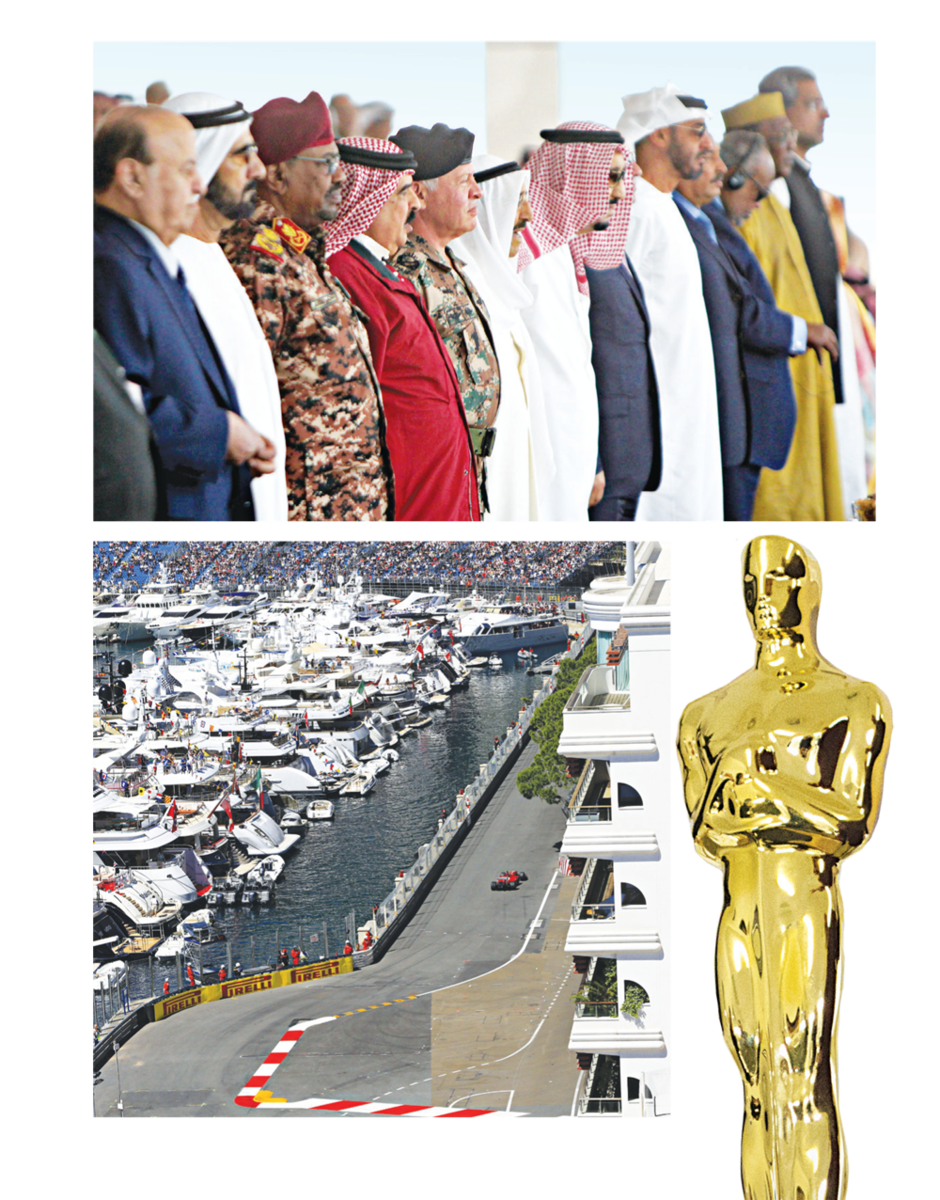
Meanwhile, the world’s tallest tower is due to be completed in Jeddah in 2019. The 1,000-meter- high building — a world first — will stand as the centerpiece and first phase of the Jeddah Economic City development. Dubai’s iconic Burj Khalifa, standing at 827 meters, will soon be surpassed in the skyscraper stakes.
“With this deal, we will reach new, as yet unheard of highs in real estate development,” said Mounib Hammoud, CEO of Jeddah Economic Co., in 2015.
In October, Riyadh will host the next edition of the Future Investment Initiative. The 2018 edition brought at least 25 deals ranging from petrochemicals to metals worth more than $50 billion, while the 40th session of the GCC annual summit will be held in the UAE later this year, building on the 2018 edition in Saudi Arabia.
At the first-ever EU-Arab summit, to be held on Feb. 24-25 in Cairo, EU and Arab leaders will meet to forge a new European-African alliance and outline plans to combat migrant smuggling. European leaders first opened up the possibility of the summit in Austria last year as they vowed to intensify talks with North African countries to curb illegal migration.
The Cairo-based Arab League includes Egypt, Libya, Tunisia, Algeria and Morocco, as well as those in the Middle East and Gulf.
In another landmark, the 2019 Arab League Summit will be held in Lebanon for the first time since March 2002. The summit’s primary focus is on development issues in the Arab world.
Elsewhere in the GCC, the UAE government has announced that 2019 will be proclaimed the Year of Tolerance to strengthen the nation’s role in encouraging stability and prosperity in the region.
Meanwhile, Al-Quds (Palestine) and Tunis (Tunisia) will be celebrated as the Arab region’s Islamic Culture Capitals, joining Bandar Seri Begavan (Brunei) in the Asia region and Bissau (Guinea Bissau) in the Africa region.
The world’s eyes will be focused on Hollywood culture on Feb. 24 with the 91st Academy Awards. The Netflix-produced drama “Roma” is among front-runners for best picture .
Across the wider world, uncertainty surrounding Brexit is set to dominate the political landscape — and the headlines.
Britain and the EU are now on a countdown as both sides work to reach a deal before midnight on March 29, which remains the deadline for the split even as debate over the terms of the UK departure continues to rage.
As things stand, unless the agreement on the table is voted through, or the UK government or EU shift their stance, Britain is on track to crash out without a deal. That could lead to the most shocking day of the year financially, with forecasts of sterling tumbling, house prices plunging and the stock market shriveling.
Economic markets and a turbulent financial year will be at the forefront of conversations at the World Economic Forum’s annual meeting in Davos-Klosters this month, which brings together global governments, world leaders, international organizations and businesses. The key theme this year is “Globalization 4.0: Shaping a Global Architecture in the Age of the Fourth Industrial Revolution.”
The 74th session of the UN General Assembly (UNGA 74) will be held in September, while Japan will host its first G20 Summit in June when the leaders of the G20 gather in Osaka.
The Asian powerhouse nation will lead discussions on issues ranging from global trade imbalances to the impact of aging populations when it chairs the meetings of leaders from the group of 20 major economies. The G20 Summit will be held in Riyadh in 2020.
Crucial political contests will also feature in the coming year, with elections due to be held in Nigeria on Feb. 16 to elect the president and National Assembly, and presidential elections to be held in Algeria in the first semester of 2019. The next general election in India must also be held by May — and it could be a closer race than many predict.
Four years ago, Prime Minister Narendra Modi led his Hindu nationalist Bharatiya Janata Party (BJP) to a record-breaking victory, winning the strongest popular mandate in three decades. Modi was expected to repeat the feat in 2019, but recent state elections — when the BJP lost power to Congress in three major states — suggest the tide may be turning.
Among highlights of the sporting year will be the FIFA Women’s World Cup in France over the summer, with the US favorites to retain their title. Around the same time, an as-yet-undecided host will stage the Africa Cup of Nations.
And 2019 will not just be about politics, economics and sports, with the birth of a new royal for the Duke and Duchess of Sussex due in spring.
Other things to watch out for? A total solar eclipse will occur on July 2. And for those who love historical landmarks, the 50th anniversary of NASA’s Apollo 11 mission — and the first time man set foot on the Moon — will be celebrated on July 20.




